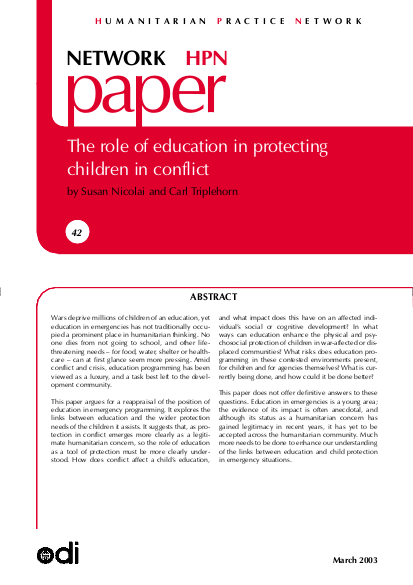
This paper argues for a reappraisal of the position of
education in emergency programming. It explores the
links between education and the wider protection
needs of the children it assists. It suggests that, as protection
in conflict emerges more clearly as a legitimate
humanitarian concern, so the role of education
as a tool of protection must be more clearly understood.
How does conflict affect a child’s education,
and what impact does this have on an affected individual’s
social or cognitive development? In what
ways can education enhance the physical and psychosocial
protection of children in war-affected or displaced
communities? What risks does education programming
in these contested environments present,
for children and for agencies themselves? What is currently
being done, and how could it be done better?
